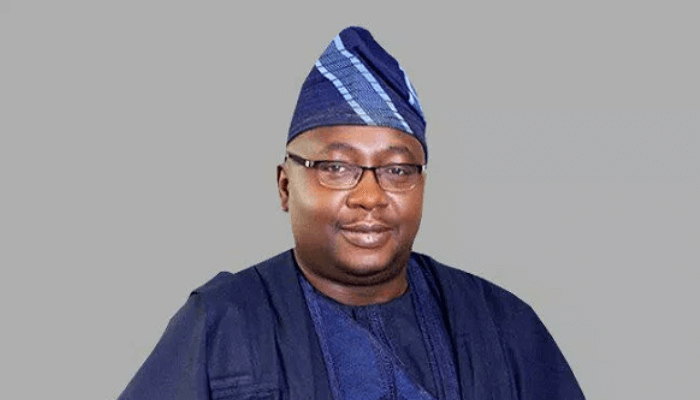Adebayo Adelabu, the minister of power has announced the readiness of the Federal government to payoff N130 billion to gas suppliers from over N2 trillion debt owed to them.
Adelabu disclosed this at the ongoing Africa Energy Market Place (AEMP) conference in Abuja on Thursday.
FG defaults push up power sector debts to N102b
According to him, President Tinubu approved the submission of the minister of state for Petroleum (Gas) to defray the outstanding debt owed to the gas supply companies to power sector operators.
“The payments are actually in two parts, but we have the legacy debt and we have the current debt. For the current debt, approval has been given for cash payments of about N130 billion from the gas and stabilisation fund, which the federal ministry of finance will pay or even already paid, not very sure.
“The payment for the legacy debt is actually going to be made from future royalties and streams of incomes in the gas subsector, which is quite satisfactory to the gas supply companies, which we believe will go a long way to encourage these gas companies into entering into firm supply contracts with the power generating companies,” he said.
Read also:US$950 million power sector debt dampens new gas investments
Adelabu, in February 2024 had explained that the country was owing a total of N1.3 trillion to the power generating companies, out of which 60 per cent is owed to gas suppliers and N2 trillion legacy debt owed to gas companies.
The minister disclosed that plans to adopt a new contract model with the gas suppliers, which will keep them under a contractual obligation to supply gas to power generating companies at all time, to ensure consistent power generation.
“So that is the situation and the model that we actually want to adopt for the gas segment of the power sector value chain for the gas. For the power generating companies, the debt is put at N1.3 trillion. I can also tell you that we have the consent of Mr president to pay on the condition of settling the reconciliation of the debts between the government and the power generating companies.
“And this we have successfully done. And it’s been signed up by both parties. Now, majority have signed up and we are actually engaging others to ensure we have a hundred percent sign off from the power generating companies.
“And the modality of paying this would be in two ways, of course there will be cash injection, immediate cash injection. Government is not bouyant enough to pay down N1.3 trillion once and for all in terms of cash, but a fraction of it that will be paid, while the remaining fraction will actually be settled through a guaranteed debt instrument, preferably, a promisory note, that is more like a comfort to these companies that in next 2 to 5years government is ready to defray these debt finally.
“This will go a long to encourage these power generating companies, to incentivise them to invest more in generation so that we can move our generation output from the level it is now to a higher level because like I said there is opportunity for higher demand, locally and across border and that is a source of foreign exchange earnings,” he said.
Read also:AfDB mulls $1bn operation fund to support Nigerian power sector
Speaking further, the minister stated that one of the flaws of identified in the government’s implementation of the power sector privatization process, was the focus on the acquisition capital, which is the money paid by investors to the federal government for taking off the distribution companies structures.
He explained that there are a number of capitalization that should be considered, “because the assets you acquire need to be brought to the level that can actually be operational and deliver immediate power service to the people. That was not considered, and there is also maintenance capital, which is the capital you require for day to day operations and maintenance of those infrastructure so that they are kept at that level that will be able to deliver the required service to the people.
“It was not considered and I believe that even the acquisition capitals were borrowed from banks at very high interest rates and the companies were under pressure to pay back, so it affected their operations.
“Then the most important one is investment and expansion capital, you need to have the capital set aside to invest in dilapidating infrastructure, deteriorating infrastructure for you to keep up to service. Most of these companies do not have that capital.
“So in determining the new capitalization level, these are things that will need to considered. And we’re going to break that down in such a way that some parts of the discos can also be franchised, if the main Discos does not have enough capital to invest in certain location.
“So I believe that the Nigerian Electricity Regulatory Commission will come up with a very comprehensive modality that will determine the level of capitalization required for our power operators, from generation to transmission and to distribution,” he said.
Read also:Overlapping debt seen drawing back power sector
He also noted that the revised tariff so far has been effective, stating that it has brought down the cost spent on electricity by customers affected as they now enjoy over 20 hours supply of electricity on a daily basis.
He added that approvals for additional feeders have been granted by NERC based on the repair or renovation work carried out on other feeders, to be added to the earlier 500 feeders supplying power to Band A customers.
” In the same vein we have seen regular downgrade of some feeders that were classified band A because they are not in a technical position to provide the required minimum number of hours of light. The principle behind this is about consumer protection to avoid exploitation.”
